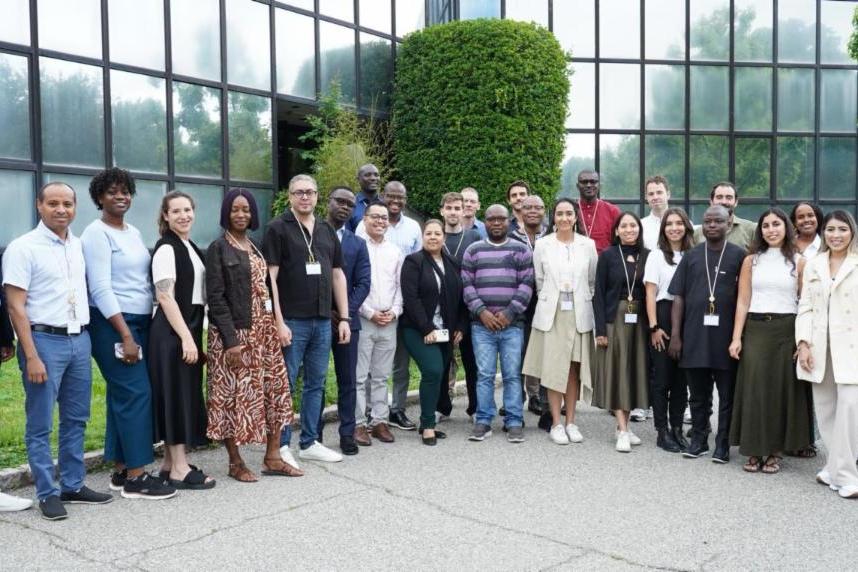
Climate Security Mechanism by the numbers
One initiative
When interacting with socio-economic and political factors, climate change can exacerbate conflict risks, thereby affecting human, national and international peace and security. This interplay also has implications for climate action. Whilst among the hardest hit by climate change, most countries and communities affected by fragility and conflict are also among those that have contributed the least to the climate crisis. The Climate Security Mechanism (CSM) responds to growing calls for action by affected communities, Member States, regional organizations, experts and policymakers around the world.
Four partners
The CSM is a joint initiative by the United Nations Department of Political and Peacebuilding Affairs (DPPA), the United Nations Development Programme (UNDP), the United Nations Environment Programme (UNEP), and the United Nations Department of Peace Operations (DPO). It aims to strengthen the capacity of the United Nations (UN) and its partners to systematically analyze and address the linkages between climate change, peace, and security (CPS). The CSM leverages partnerships and strengthens its work by drawing on experiences and capacities of its four constituent entities.
Four priorities
The CSM is coordinated by a Core Team of dedicated staff from DPPA, UNDP, UNEP and DPO headquarters supported by a Secretariat. The CSM Core Team undertakes global workstreams – such as policy development – and coordinates initiatives in climate-vulnerable regions around the world, including through the deployment of climate, peace and security experts and trainings. The CSM has streamlined its work into four priority areas: (1) support to analysis and action; (2) advocacy, partnerships and convening; (3) knowledge co-generation and management; and (4) capacity building.

An interagency initiative
DPPA
DPPA contributes global expertise in political analysis and early warning, conflict prevention, peacemaking and sustaining peace. The Department’s direct interaction with the UN Security Council, management of special political missions in the field, close working relationship with the Department of Peace Operations, and support to UN Country Teams in complex non-mission settings provide a strong peace and security dimension. Read more about DPPA's work on addressing the impact of climate change on peace and security.
UNDP
UNDP is the largest provider of technical support to climate change mitigation and adaptation in the UN system and maintains the largest Nationally Determined Contribution (NDC) enhancement programme in the word, through the Climate Promise. It also implements the largest peacebuilding portfolio in the UN system and possesses leading expertise in conflict prevention and sustaining peace, governance, disaster risk reduction and recovery delivered through its network of 170 Country and Regional Offices. Read more about UNDP's response to climate and security risk.
UNEP
UNEP works to minimize the environmental causes and consequences of crises, promotes the coherent implementation of the environmental dimension of sustainable development within the UN system and provides technical expertise on the environment. It also co-hosts the Intergovernmental Panel on Climate Change (IPCC) which produces comprehensive assessments on the state of knowledge of climate change. Read more about UNEP's work on climate change and security risks.
DPO
DPO deploys 11 peacekeeping operations with almost 75,000 uniformed personnel and 12,000 civilian personnel. The largest UN peacekeeping operations in Africa are in areas facing high levels of climate change, namely South Sudan, the Democratic Republic of the Congo, and the Central African Republic. The Department maintains interaction with the UN Security Council, manages peacekeeping operations in the field, and works closely with DPPA and the Department of Operational Support.
Our impact so far
1,985+
UN and non-UN analysts trained on integrated climate, peace and security risk analysis
16
Initiatives launched to address climate, peace and security linkages in climate-vulnerable countries and regions
10
Climate, Peace and Security advisors and experts deployed and backstopped: 7 in UN field missions and 3 in regional organizations
700+
UN colleagues in the Community of Practice on Climate, Peace and Security facilitated by the CSM
Build Your Expertise in Climate, Peace and Security
Take the free online course which is designed to benefit a broad range of policymakers, practitioners, and researchers. The more advanced modules are particularly relevant for political analysts and peacebuilding practitioners, climate adaptation specialists, and gender and inclusion advisors.
Course structure
The course includes 3 self-standing modules:
- Module 1: Climate Change, Peace and Security
- Module 2: Conducting Integrated Analysis
- Module 3: Designing integrated approaches for programming and planning
The training has been developed through a collaboration with the United Nations Environment Programme, the Climate Security Mechanism, UN Women, the One UN Climate Learning Partnership and adelphi, in partnership with the European Union and the Government of Finland.
Latest News
Latest Publications
Climate, Peace and Security Newsletter
The UN Climate, Peace and Security Newsletter, curated by the Climate Security Mechanism, shares relevant information and updates on climate, peace and security from around the world. Stay tuned and feel free to share content and suggestions to help us make the newsletter useful and distinctive.
Click this link to sign up to the newsletter and see the list of previous issues below:






























